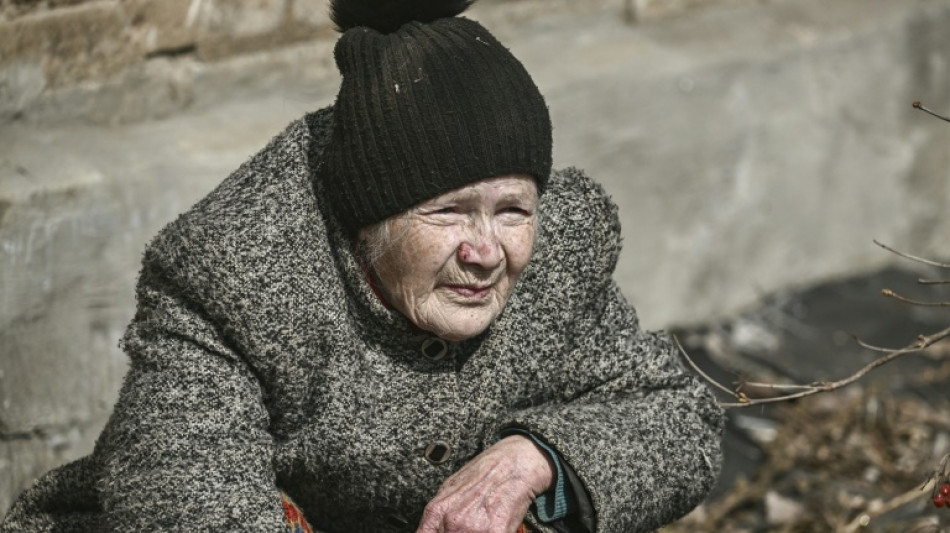
-
 UN body warns over Trump's deep-sea mining order
UN body warns over Trump's deep-sea mining order
-
UK local elections test big two parties

-
 US judge says Apple defied order in App Store case
US judge says Apple defied order in App Store case
-
Seventeen years later, Brood XIV cicadas emerge in US

-
 Scorching 1,500m return for Olympic great Ledecky in Florida
Scorching 1,500m return for Olympic great Ledecky in Florida
-
Israel's Netanyahu warns wildfires could reach Jerusalem

-
 Istanbul lockdown aims to prevent May Day marches
Istanbul lockdown aims to prevent May Day marches
-
Australian guard Daniels of Hawks named NBA's most improved

-
 Mexico City to host F1 races until 2028
Mexico City to host F1 races until 2028
-
Morales vows no surrender in bid to reclaim Bolivian presidency
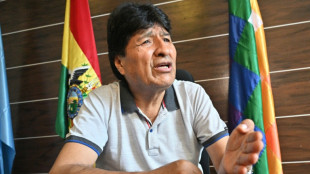
-
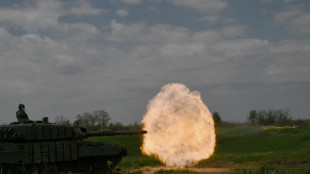 Ukraine, US sign minerals deal, tying Trump to Kyiv
Ukraine, US sign minerals deal, tying Trump to Kyiv
-
Phenomenons like Yamal born every 50 years: Inter's Inzaghi

-
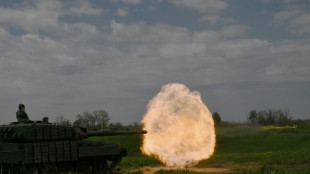 Ukraine, US say minerals deal ready as Kyiv hails sharing
Ukraine, US say minerals deal ready as Kyiv hails sharing
-
Global stocks mostly rise following mixed economic data

-
 O'Sullivan says he must play better to win eighth snooker world title after seeing off Si Jiahui
O'Sullivan says he must play better to win eighth snooker world title after seeing off Si Jiahui
-
Sabalenka eases past Kostyuk into Madrid Open semis

-
 Netflix's 'The Eternaut' echoes fight against tyranny: actor Ricardo Darin
Netflix's 'The Eternaut' echoes fight against tyranny: actor Ricardo Darin
-
US economy unexpectedly shrinks, Trump blames Biden

-
 Barca fight back against Inter in sensational semi-final draw
Barca fight back against Inter in sensational semi-final draw
-
Meta quarterly profit climbs despite big cloud spending

-
 US Supreme Court weighs public funding of religious charter school
US Supreme Court weighs public funding of religious charter school
-
Climate change made fire conditions twice as likely in South Korea blazes: study
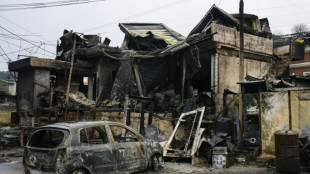
-
 Amorim says not even Europa League glory can save Man Utd's season
Amorim says not even Europa League glory can save Man Utd's season
-
Syria reports Israeli strikes as clashes with Druze spread

-
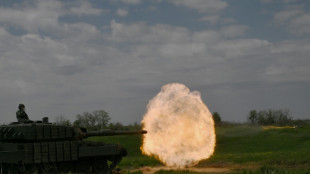 Ukraine, US say minerals deal ready as suspense lingers
Ukraine, US say minerals deal ready as suspense lingers
-
Everything is fine: Trump's cabinet shrugs off shrinking economy

-
 Chelsea boss Maresca adamant money no guarantee of success
Chelsea boss Maresca adamant money no guarantee of success
-
Wood warns England cricketers against 'dumb' public comments

-
 US economy shrinks, Trump blames Biden
US economy shrinks, Trump blames Biden
-
Caterpillar so far not hiking prices to offset tariff hit

-
 Japan's Kawasaki down Ronaldo's Al Nassr to reach Asian Champions League final
Japan's Kawasaki down Ronaldo's Al Nassr to reach Asian Champions League final
-
Trump praises Musk as chief disruptor eyes exit

-
 Chahal hat-trick helps Punjab eliminate Chennai from IPL playoff race
Chahal hat-trick helps Punjab eliminate Chennai from IPL playoff race
-
Pope Francis saw clergy's lack of humility as a 'cancer': author
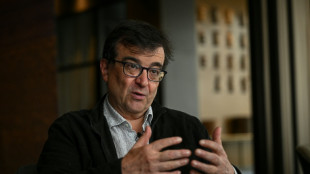
-
 Weinstein accuser recounts alleged rape at assault retrial in NY
Weinstein accuser recounts alleged rape at assault retrial in NY
-
Piastri heads into Miami GP as the man to beat

-
 US economy unexpectedly shrinks in first quarter, Trump blames Biden
US economy unexpectedly shrinks in first quarter, Trump blames Biden
-
Maxwell likely to miss rest of IPL with 'fractured finger'

-
 Syria reports Israeli strikes after warning over Druze as sectarian clashes spread
Syria reports Israeli strikes after warning over Druze as sectarian clashes spread
-
Despite war's end, Afghanistan remains deep in crisis: UN relief chief
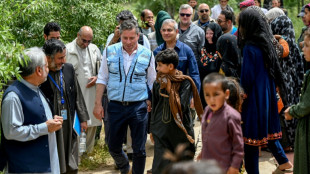
-
 NFL fines Falcons and assistant coach over Sanders prank call
NFL fines Falcons and assistant coach over Sanders prank call
-
British teen Brennan takes stage 1 of Tour de Romandie

-
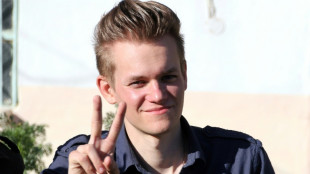 Swedish reporter gets suspended term over Erdogan insult
Swedish reporter gets suspended term over Erdogan insult
-
Renewable energy in the dock in Spain after blackout

-
 South Africa sets up inquiry into slow apartheid justice
South Africa sets up inquiry into slow apartheid justice
-
Stocks retreat as US GDP slumps rattles confidence

-
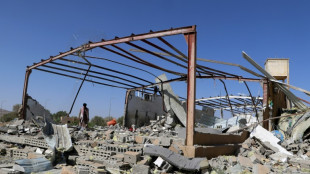 Migrants' dreams buried under rubble after deadly strike on Yemen centre
Migrants' dreams buried under rubble after deadly strike on Yemen centre
-
Trump blames Biden's record after US economy shrinks

-
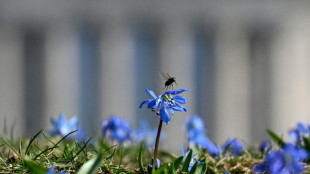 UK scientists fear insect loss as car bug splats fall
UK scientists fear insect loss as car bug splats fall
-
Mexico avoids recession despite tariff uncertainty


As winter ends, a garden takes shape near Ukraine frontline
Galyna hunches over her small garden in Chasiv Yar, her frail silhouette in stark contrast with the powerful tanks rumbling past her home near the frontline in eastern Ukraine.
"I love gardening, you know," the 69-year-old says as she plans a fresh crop at the end of a harsh wartime winter. Her face lights up at the mention of her passion.
"Last year, I had incredible tomatoes here, even watermelons, small ones, but it's a treat, believe me," she enthuses as she spoke to AFP.
The town where she has lived for 38 years is the first to the west of Bakhmut, a city in eastern Ukraine that has been destroyed in the longest and bloodiest battle of the Russian invasion.
Already facing regular bombings, Chasiv Yar, home to 13,000 people before the war, could be the next target of Moscow's army if Bakhmut falls.
But Galyna plans to plant more tomatoes and flowers anyway.
Her garden is an unmarked patch of land at the back of her three-storey apartment building, where she lives in a first-floor apartment with her disabled son, who is around 40 years old.
Just ahead lies a road where armoured vehicles and tanks make their way to and from the frontline.
The crash of cannon and mortar fire aimed at Russian positions regularly sound in the small town.
Galyna, who uses her little garden as an outlet for the stress of the war, has grown used to the racket.
"When I realised the war had started, I brought violets and many different types of flowers here. They grow in the forest, so I plant them here so that I don't miss them," she said.
"I feel happy every time I look at them."
- 'A smaller shovel' -
But now, as the spring approaches, Galyna -- dressed in an elegant, mottled grey coat buttoned to the neck, multicoloured trousers and fur boots -- is frustrated.
"I just need a smaller spade to dig up the ground for my flower seeds," she said, pointing to a bulky tool almost as tall as her.
She also regrets not having "much time to garden. I need to take care of my neighbour. She is 93, the same age my mom would have been. I take her water and bread."
Few people still live in the crumbling neighbourhood of Soviet-era buildings. The roofs of some of them have been ripped apart by Russian strikes.
"There, you can see a bomb struck it," Galyna said, pointing to a nearby building. She said two people she knew who lived there had been moved to "another house because it was no longer safe to live there, there was no longer a roof".
Widowed in 1994, she is staying in Chasiv Yar to care for her son.
"One day, my son went to the humanitarian aid centre. His friend was injured there (by shrapnel), and an ambulance came and they treated him. My son was very scared. He used to charge his phone there, but now he doesn't," says Galyna.
She also has a daughter, who lives in Germany, is married and has three children.
"When there was phone service, we could communicate. About a month ago I think she was saying 'I wish you could come here, to our house'."
But she added: "I think I am going to stay here."
Suddenly, a Russian shell whistled and exploded a few hundred metres east of the city.
"There's nothing to fear. You see, I'm not shaking. I'm used to it," Galyna said with a small smile.
Two other shells followed, setting two houses on fire.
"I hope to stay safe," she said.
When she goes down to the garden, she added: "I feel an angel saying 'Don't go'.
"But I go anyway."
P.Silva--AMWN